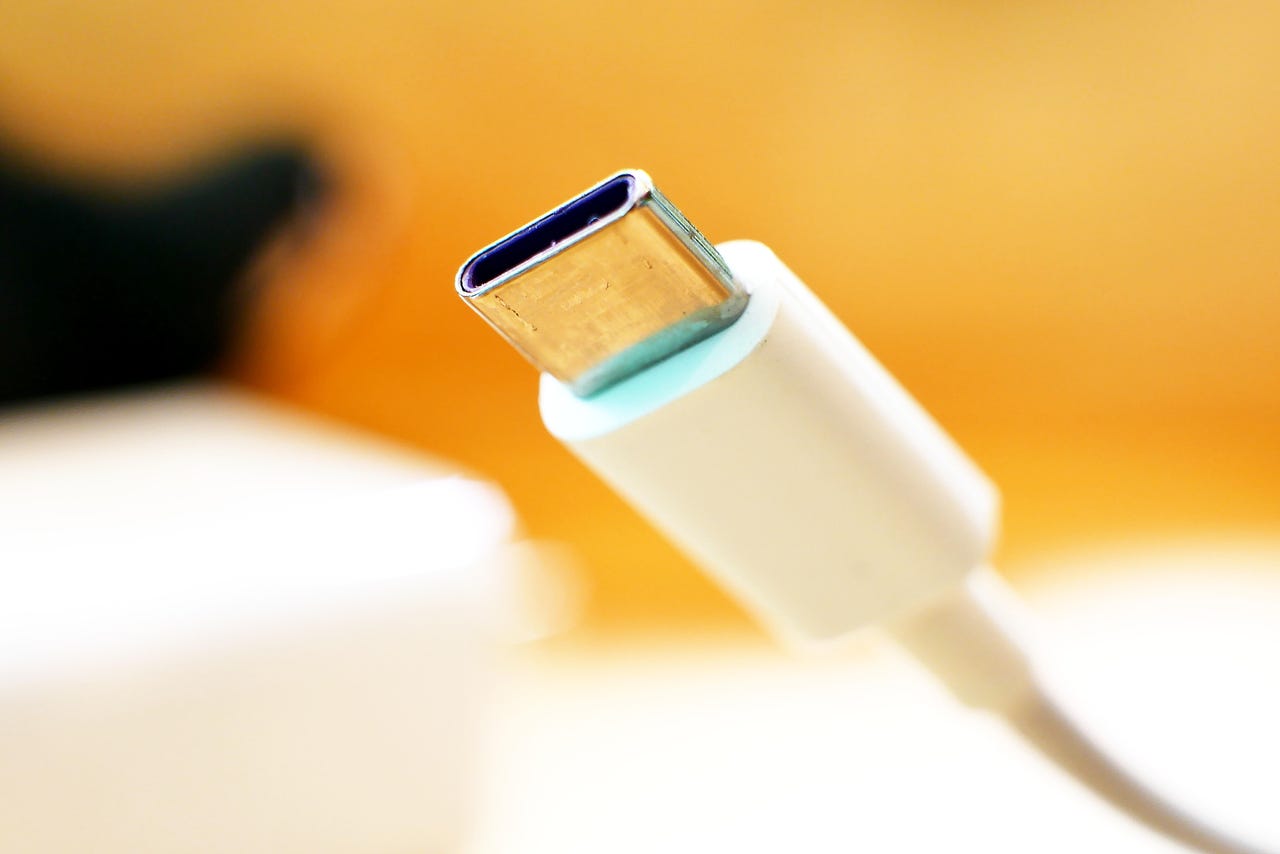































 Image: Getty Images/iStockphoto
Image: Getty Images/iStockphoto The European Parliament has approved a decision to mandate that all electronic devices sold in the EU must have a universal charging port in the coming years.
According to the new rule, all portable electronic devices sold in the EU, including mobile phones, laptops, digital cameras, headphones, video game consoles, e-readers, keyboards, mice, portable GPS devices, and headsets, must have USB-C charging ports.
The new rule will apply to mobile phones, tablets and cameras sold in the EU by the end of 2024. By spring of 2026, laptops will have to abide by the mandate. The new law aims to address a few problems caused by wired charges, such as environmental impact, consumer spending and technological tying.
Also: Using the wrong USB-C cable can damage your tech. Here's how to avoid that
"Under the new rules, a consumer will no longer need a different charger every time they purchase a new device, as they will be able to use one single charger for a whole range of small and medium-sized portable electronic devices," a press release from the European Parliament stated.
Within the coming years, the law will also apply to wireless charging options with a goal of increased interoperability in mind.
Devices too small for USB-C charging ports are excluded from the rule, such as smartwatches and fitness trackers.
Also: Why you shouldn't leave charging cables plugged into your power bank
The decision will put light pressure on Apple in particular, who manufactures charging cables only compatible with Apple devices. This monopolistic business model is called technological tying. It restricts interoperability, and it's made the Apple ecosystem wildly profitable.
Apple's devices use a unique charging port, and the company manufactures its own charging cables for iPhones that use a Lightning connector. However, ahead of the decision, newer iPad and MacBook Pro models switched to USB-C charging ports.
Last year, when the rule circulated around the Parliament, Apple disagreed with the proposition, saying that enforcing a universal connector "stifles innovation rather than encouraging it", according to BBC News.
Once the European Council approves the rule, it will be published in the EU Official Journal and enforced 20 days after it's published. New devices must begin to follow the rule after two years, and devices sold before the Journal's publication will receive an exemption.
 Tags quentes :
Inovação
Tags quentes :
Inovação